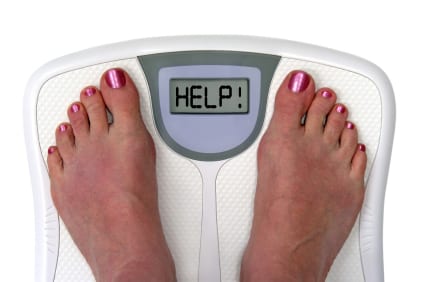
Dee Dee, a new expat arrival to Moscow, caught me in a sour mood.
“Is there a Jenny Craig in Moscow?” she wailed.
“Of course,” I quipped back, “I’m amazed you didn’t notice it – it’s right there on Red Square, between Target and Whole Foods.”
“There’s a Target in Moscow?” she asked breathlessly.
Alas no. There is no Target in Moscow. There is no Jenny Craig, nor even one single Weight Watchers meeting. If you are feeling homesick for the US, there is a McDonald’s on almost every street corner, KFC, Dunkin’ Doughnuts, TGI Friday’s, Pizza Hut, Subway, and a newly opened Chili’s on New Arbat Street. Moscow is the last place in the world you want to try and diet: it takes twice as long to lose a kilo as it does a pound, you can’t walk anywhere, it takes four hours to drive to the gym, everyone drinks too much, and stocking your kitchen with fresh fruit, lean meat, and whole grains is three day marathon. Is it any wonder expat women are constantly struggling to take off some weight?
I met Dee Dee for a latte, and after much persuasion, Larissa the Barista at Starbuck’s on Tverskaya made them with 1,8% milk instead of the usual 3,5%. Feeling guilty about my earlier mood, I slid two yellow packets from my horde of imported Splenda over the table to Dee Dee who behaved as if it was Grade A Beluga Caviar.
“I’ve been here two months,” she complained, “and I’ve put on ten pounds! I didn’t notice at first because the scale in our hotel room was in kilos – I actually thought I’d lost some weight — but then our container arrived with my regular scale and I was horrified. Do you think it could have been recalibrated during the voyage?”
“Very possibly,” I soothed.
“I can’t find any low-fat food anywhere – everything in the restaurants is either deep fat fried or swimming in butter or sour cream, and where are all the low-fat products? The yogurt is like 5% !”
“That,” I said putting on my chef’s toque for a moment, “is by way of being a hallmark of quality here – high-fat content is an indicator that the product has been made with good materials.”
“Bunch of hooey,” retorted Dee Dee, “Look at all those skinny girls out there,” she waved her hand towards Tverskaya Street, “are you telling me they subsist on 5% milk and deep fried everything?”
“They are the Banana Generation,” I explained, “that’s why they are so tall and slim.”
The dubious Banana Generation theory is a soothing balm to every expat woman who ever warily eyed her husband’s new twenty-six year old 5’10”, 89-pound secretary. According to the theory, the generation of children who are now abnormally tall and enviously slim were entering puberty in the years just after perestroika, when vassal states such as Cuba were repaying their debt to Russia in fruit, flooding the previously barren Soviet shelves with affordable bananas. Russians, who to this day regard a glut in anything as a license to stockpile as if the apocalypse were scheduled for the next day, loaded up their shopping bags with bananas and force fed them to the small children in their care. And, the theory runs, there is something in bananas that produces abnormally high growth spurts in early adolescence.
“That’s ridiculous,” scoffed Dee Dee. “If that were true, the boys would all be abnormally tall, and I haven’t noticed that.” She tilted her head towards a pair of diminutive pimpled young men at the next table engrossed in a video game. “You’re holding out on me, there must be some kind of diet help here.”
Indeed there is. In twenty years, I have seen hundreds of diet fads come and go. In the early 90s there was “Gerbal Laif,” with hyperactive salesmen in the Moscow metro wearing buttons on their grimy leather jackets proclaiming, “Want to Lose Weight – Ask Me How!” I often wondered if anyone had ever asked how given that Russians would rather have a colonoscopy than converse with a stranger in public. As “Gerbal Laif” declined, a revolutionary program known as “New Vays” took its place. Skeptics like HRH noted that “New Vays” was remarkably similar to “Gerbal Laif” with its powders and potions, all of which turned out to be manufactured from outdated talcum power at a dubious factory outside Minsk. Diet pills from Thailand enjoyed huge popularity until a spate of hospitalizations and an enterprising yellow journalist put the kibosh on them. A number of my svelte acquaintances tried the “Extrasens” or hypnotist, where they were told that their biorhythms were severely unbalanced and that only twelve sessions with her – twelve sessions minimum – could rectify their organism to accept weight loss.
The advent of clean-living Vladimir Putin introduced the briefly popular Kremlin Diet—an innovative program that eliminated sugars, starches, and alcohol, leaving protein and vegetables as staples. This was completely eclipsed, however, by the arrival of the Atkins Diet. Finally, a diet made for Russians! Go ahead, said the Atkins people, eat that pork fat, drink that sour cream – as much as you want! Wash it all down with vodka, just don’t, for God’s sake, have a banana!
Dee Dee and I hit upon a very expat solution. We created our own Weight Watchers-type support group, easily recruiting other expats as members. We met a few times for weigh-ins and discussions, but it quickly spiraled into a wine drinking/moaning about the servant problem evening.
Which, of course, is how we piled on the kilos in the first place.
This article was first published in Russia Beyond The Headlines under the title “A History of Dieting” on May 24, 2011. A link to that online version can be found here.
Dear Readers!
Have you ever tried to diet? Of course, you have! You’re probably, like me, firmly into the third week of the Dukan Diet. How’s that working out? Ever tried to diet in kilos? Ever tried to diet abroad? Let’s have your diet stories!! You don’t have to use your real name! Hit the comment button and let ‘er rip!!









So true, so funny!!
Great post, Jen! you forgot to mention just how many calories are consumed in an average moscow evening, because the vodka (or wine) is loaded with calories, and you have to keep eating as you drink to keep from getting completely blotto. and the average party lasts for 10 hours. It has taken me four years of living in america to take off all the weight I gained during 12 years russia. God bless fat free foods, oat bran, and affordable gym memberships!
strangely, i lost weight in Russia and gained it since i’ve been back in North America. Having one’s appendix removed helps with the weight loss—4 days of not really eating. my theory is that i am getting more nutrients from food now which is the weight gain. or middle age. 😉
Moving around in public transport or on foot usually helps a lot 😉
I actually lost weight in Moscow. I calculated that I walked on average 4 hours a day. And my apartment was 15 minutes by foot from my gym (many metro stations have gyms nearby). I think that people often gain weight when they move abroad, because their eating habits change, foods are unfamiliar, and they start to eat more or rely on fast food. Most people say they gain weight in the US or Europe. I also find the Russian portions are smaller, if you go by foot you can buy less food, and that leads to eating less. Going out in Moscow is expensive (a cup of coffee can cost $7!) so people are more inclined to eat at home (which is inherently healthier). And while I was in Moscow I can’t say I knew a single person (under the age of 50) whom I would call really overweight (I did know a couple of chubby people – all men – who might be considered “average” in America). There is definitely the problem that stocking up on healthy food can be more difficult, but not really that much more difficult than anywhere else, in my opinion. Certainly in the US there is a much greater abundance of unhealthy food – frozen food, ice cream, processed foods, etc., which pull people away from healthier options.
Great article. I’m still chuckling. Sadly, I do miss the yogurt. America just doesn’t have great yogurt.
Hi Jen,
As you know I am living in Ukraine and a group of men have had success with a Ukrainian/ Rusisan diet that lasts 28 days, you can tell its not European or US based as no pasta, rice or potatoes (strange for this part of the world) and makes sense and very good but alas, the issue is always the same, its how you manage your eating patterns when you come off the diet and how you change your lifestyle. I am sending this by email for you to evaluate and maybe comment. Regards Charles PS: Don’t forget that MEN need to diet too.
Several years ago during a visit to high-caloric Berk County in Pennsylvania, we stopped at a family-style Pennsylvania Dutch restaurant…even spinach would be swimming in butter, topped with bacon, so …oh well, I ordered french fries and commented to my friend,”I haven’t had these in years.” The waitress (who obviously had been enjoying
home cooking for years) commented, “Why, where are you from??”)